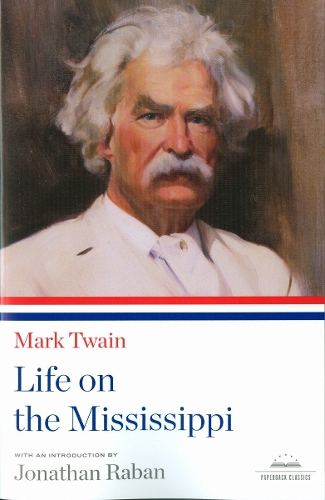
Life on the Mississippi: A Library of America Paperback Classic
(Paperback)
Available Formats
Paperback
Published: 28th March 2003
Paperback
Published: 3rd March 2009
Paperback
Published: 30th July 2009
Publishing Details
Life on the Mississippi: A Library of America Paperback Classic
By (Author) Mark Twain
Introduction by Jonathan Raban
The Library of America
The Library of America
30th July 2009
United States
Classifications
General
Non Fiction
Biography: historical, political and military
Biography: writers
B
Physical Properties
Paperback
432
Width 132mm, Height 203mm, Spine 19mm
397g
Description
Mark Twain was the first truly American writer, and all of us since are his heirs. --William Faulkner A brilliant amalgam of remembrance and reportage, by turns satiric, celebratory, nostalgic, and melancholy, Life on the Mississippi evokes the great river that Mark Twain knew as a boy and young man and the one he revisited as a mature and successful author. Written between the publication of his two greatest novels, Tom Sawyer and Huckleberry Finn, Twains rich portrait of the Mississippi marks a distinctive transition in the life of the river and the nation, from the boom years preceding the Civil War to the sober times that followed it. Library of America Paperback Classics feature authoritative texts drawn from the acclaimed Library of America series and introduced by todays most distinguished scholars and writers. Each book features a detailed chronology of the authors life and career, and essay on the choice of the text, and notes. The contents of this Paperback Classic are drawn from Mark Twain- Mississippi Writings, volume number 5 in the Library of America series. It is joined in the series by six companion volumes, gathering the collected works of Mark Twain.
Author Bio
Mark Twain was born Samuel Langhorne Clemens in Florida, Missouri, in 1835, and died at Redding, Connecticut in 1910. In his person and in his pursuits he was a man of extraordinary contrasts. Although he left school at twelve when his father died, he was eventually awarded honorary degrees from Yale University, the University of Missouri, and Oxford University. His career encompassed such varied occupations as printer, Mississippi riverboat pilot, journalist, travel writer, and publisher. He made fortunes from his writing but toward the end of his life he had to resort to lecture tours to pay his debts. He was hot-tempered, profane, and sentimental_x0097_and also pessimistic, cynical, and tortured by self-doubt. His nostalgia helped produce some of his best books. He lives in American letters as a great artist, the writer whom William Dean Howells called "the Lincoln of our literature."
